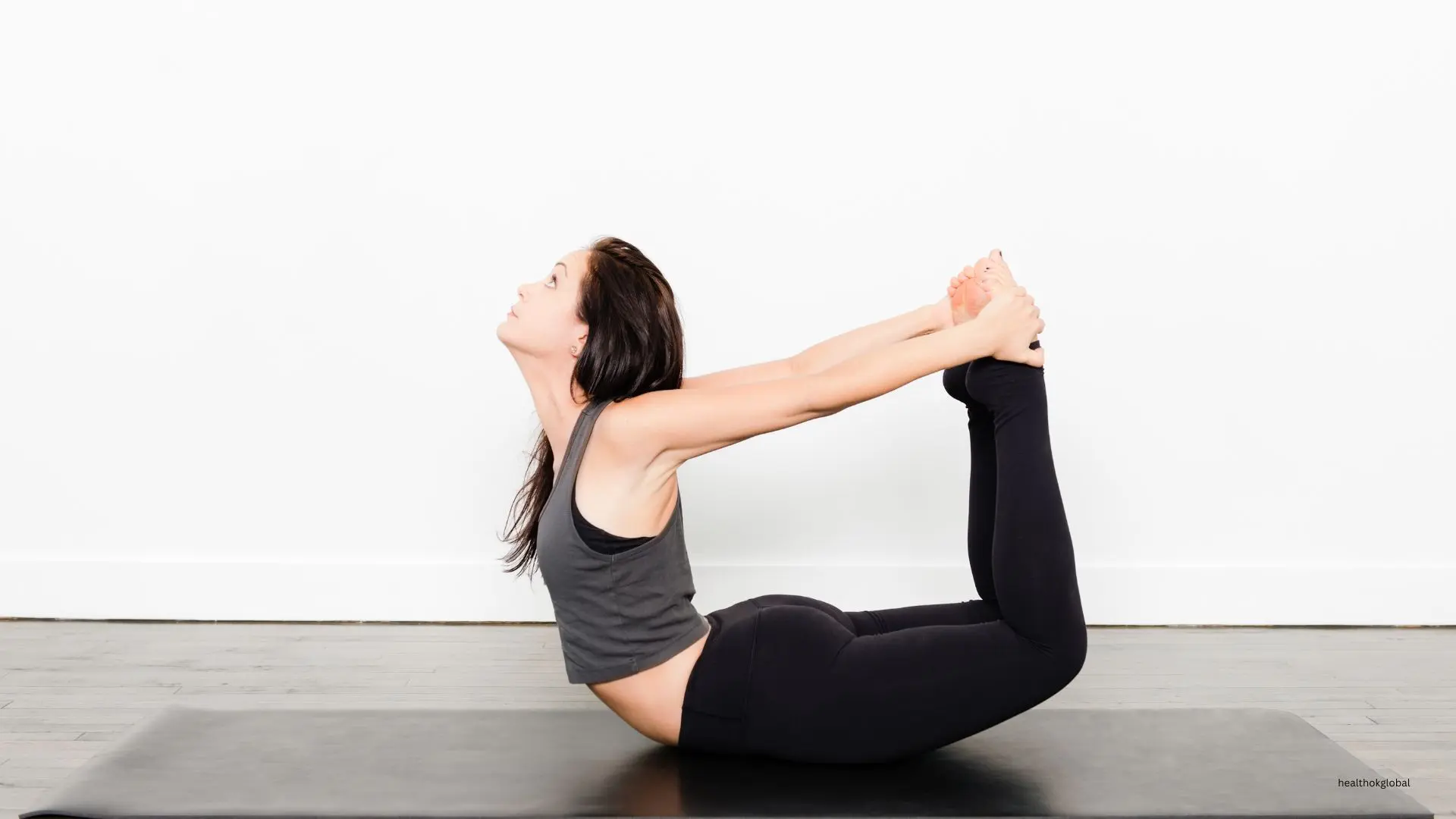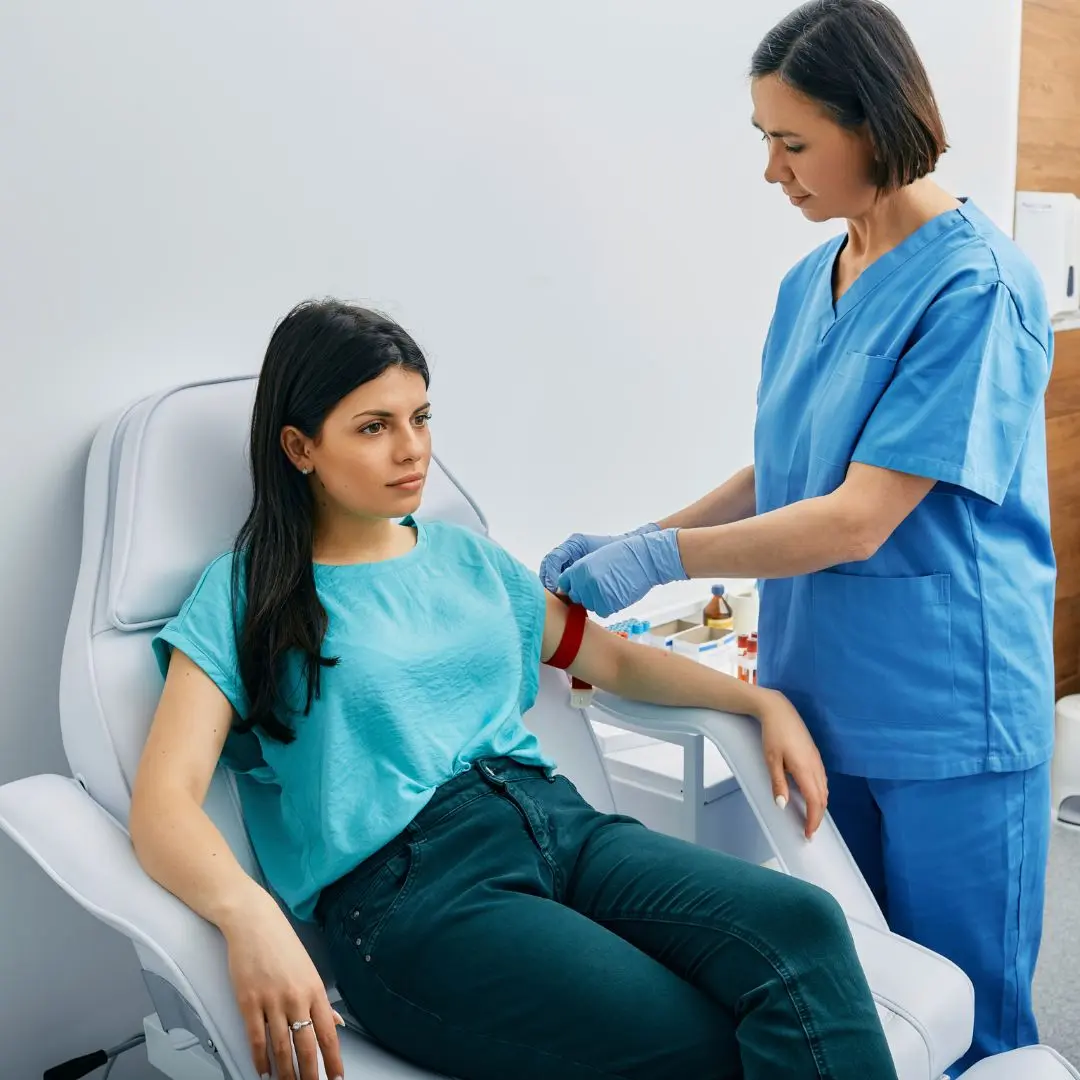The Bow Pose, or Dhanurasana, is a powerful yoga posture that stretches and strengthens the body, offering numerous health benefits.

Blog
Bow Pose Yoga: Benefits, Steps, and Tips for Mastery
The Bow Pose, or Dhanurasana, is a powerful yoga posture that stretches and strengthens the body, offering numerous health benefits. This backbend pose is named after the shape the body takes, resembling a bow ready to shoot an arrow. Practicing the Bow Pose regularly can improve flexibility, boost energy levels, and enhance overall well-being. This blog explores the benefits, step-by-step guide, and tips for mastering the Bow Pose.
The Bow Pose offers a range of physical and mental benefits. Some of the key benefits include:
The Bow Pose stretches the entire front body, including the chest, abdomen, thighs, and hip flexors, enhancing overall flexibility.
This pose strengthens the back muscles, helping to alleviate back pain and improve posture.
By compressing the abdomen, the Bow Pose massages and stimulates the digestive organs, promoting better digestion and metabolism.
The Bow Pose opens the chest and shoulders, improving respiratory function and relieving tension in the upper body.
This dynamic pose invigorates the body, increasing energy levels and combating fatigue.
Practicing the Bow Pose can help reduce stress and anxiety by promoting relaxation and mental clarity.
The pose stimulates the endocrine glands, helping to balance hormones and support overall hormonal health.
By enhancing circulation, the Bow Pose helps deliver more oxygen and nutrients to the body's tissues.
To perform the Bow Pose, follow these steps carefully:
Lie flat on your stomach with your arms resting by your sides and your forehead on the mat.
Bend your knees and bring your heels close to your buttocks.
Reach back with your hands and hold your ankles.
Inhale deeply, lift your chest off the ground, and pull your legs up and back.
Hold the pose for 15-30 seconds while breathing deeply.
Exhale and gently release your ankles, lower your legs, and rest your forehead on the mat.
Relax in the prone position, taking deep breaths.
Mastering the Bow Pose requires practice and patience. Here are some tips to help you improve:
Always warm up with gentle stretches before attempting the Bow Pose to prevent injury.
If you find it challenging to reach your ankles, use a strap to bridge the gap between your hands and feet.
Maintain steady and deep breaths throughout the pose to stay relaxed and focused.
Engage your core muscles to support your lower back and prevent strain.
Incorporate the Bow Pose into your regular yoga practice to build strength and flexibility over time.
Never push yourself too hard. Listen to your body and modify the pose as needed to avoid injury.
Avoid these common mistakes to ensure safe and effective practice:
Focus on lifting your chest and legs evenly rather than over-arching your lower back.
Keep your breath steady and avoid holding your breath during the pose.
Don't force your body into the pose. Ease into it gradually and respect your limits.
Always warm up properly before attempting the Bow Pose to prevent muscle strain.
To make the Bow Pose accessible to all levels, consider these modifications and variations:
Perform the pose with one leg at a time for a gentler stretch.
Use a yoga block or bolster under your chest for added support.
For a deeper stretch, lift your thighs off the ground and bring your feet closer to your head.
While the Bow Pose is beneficial, it may not be suitable for everyone. Take the following precautions:
If you have a history of back injuries, consult with a healthcare professional before attempting this pose.
Those with shoulder injuries should be cautious and modify the pose as needed.
Pregnant women should avoid the Bow Pose due to the pressure it places on the abdomen.
Always listen to your body and avoid pushing yourself beyond your comfort level.
The Bow Pose, or Dhanurasana, is a powerful yoga posture that offers numerous benefits for both the body and mind. By incorporating this pose into your regular yoga practice, you can improve flexibility, strengthen your back, and enhance overall well-being. Remember to follow the steps carefully, listen to your body, and practice regularly to master the Bow Pose and enjoy its full range of benefits.
The Bow Pose offers a range of physical and mental benefits. Some of the key benefits include:
To perform the Bow Pose, follow these steps carefully:
Avoid these common mistakes to ensure safe and effective practice:
Need Personalized Health Guidance?
Get expert advice tailored to your specific health needs from our qualified healthcare professionals.





